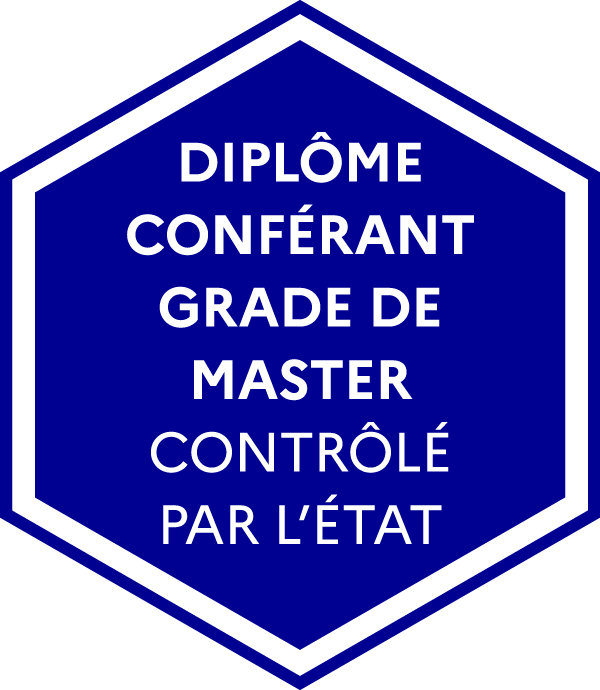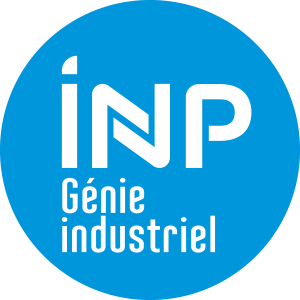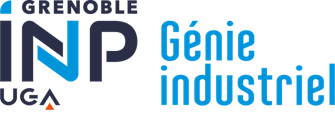Number of hours
- Lectures 10.5
- Projects -
- Tutorials 10.5
- Internship -
- Laboratory works -
- Written tests -
ECTS
ECTS 6.0
Goal(s)
The objectives of this course is to develop competencies in designing your own research in industrial Engineering and Operations management
The course is organized in two parts
- A series of lectures that explore research methodologies and methods.
- An advanced research project where students are expected to write their research proposal concerning their master thesis ( for Master Students) or concerning a research topic for Engineering diploma students.
Students would learn to be able to :
- Understand the different research methodologies mainly used in operations management and engineering design.
- Choose and justify relevant methods to develop their own research
- Review and analyze research papers
- Present their research in publications.
- Write a research proposal
Content(s)
LECTURE CONTENT
1,5 ECTS credits - workload 40 hours
The course is organized in 3 main parts
1 INTRODUCTION TO RESEARCH IN OPERATIONS MANAGEMENT AND DESIGN.
2 DESIGNING AND CONDUCTING THE RESEARCH
Some relevant methods used in operations management
• Survey
• Case study
• Longitudinal field study
• Action research
• Modeling and simulation
• Experiments
3 PRESENTING AND DEFENDING THE WORK.
Literature review : Building a literature review -
Reviewing a paper : Analysis of structure of paper in the field by reviewing them.
MODALITY OF WORK:
Individual work : Lecture and reading about the methods.
Group work sharing and building a synthesis or presenting to the group
Analysis of papers from the field of operations research and/or design research
From a paper proposed write an abstract and a title
Exchange with researchers skilled on the use of these methodologies in their research.
EVALUATION
Individual work and group work, Individual Exam
Lecture Evaluation : 25%
ADVANCED RESEARCH PROJECT
4,5 ECTS credits Workload 110 hours
OBJECTIVE
This exercise aims to train students to formulate and write a research proposal. Writing a research proposal is a complex and important task required before starting research project.
A research proposal is a document written by a researcher that provides a detailed description of the proposed program. Research proposals contain extensive literature reviews and must offer convincing support of need for the research study being proposed by identifying the gaps that are in the literature.
A research proposal is intended to convince others that you have a worthwhile research project and that you have the competence and the plan to complete it.
Total work load is about 112 hours
PROJECT ORGANIZATION.
Students are expected to write a research proposal (2000 words ) on the subject they have chosen to address.
• For Master students : Research proposal is related for their master thesis.
• For students in “Parcours recherche” : Research proposal is built from a topic defined by a senior researcher.
Three intermediate deliverables are structured to guide students through the proposal writing process.
DELIVERABLE 0: PROJECT PLANNING [DUE MID OCTOBER]
As each student is working under the direction of a senior researcher, student is tasked with planning the meetings with their own directors. Strategic help can be provided by professor in charge of the course and during the “researching operations management” course.
DELIVERABLE 1: LITERATURE RESEARCH AND IDENTIFICATION [DUE EARLY NOVEMBER]
Each research project is based on previous work, typically provided by research director. This can be the starting point of the literature review. Students have to develop their own collection of relevant papers using databases (sciencedirect, web of knowledge, scorpus, googlescholar, Gael, biblio ST2I CNRS)
A document presenting these researches and their organization will be the deliverable 1. Workload ~15h
D2 - PAPER SELECTION AND READING - [DUE EARLY DECEMBER]
Use the paper summary template in Chamillo (repository documents) and present at least six papers related to your research topic. These paper summaries may form the basis for your critical literature review for future projects, so time and care should be spent to make these as clear as possible.
Workload ~30h
D3 – LITERATURE ORGANIZATION [DUE END DECEMBER]
Students will propose a map, a model, a table, a scheme, or graph presenting a synthetic vision of their literature review, organizing and linking papers, key concept, key questions, and author’s contribution (1 A4 or A3). As with any generated document, an explanation of the figure or table should be at least as long as the figure and table itself (1page of explanation of how to read the document). Again, you will likely reuse this document in your future research, so care should be given to do it right.
Workload ~10h
DF- STRUCTURE OF A RESEARCH PROPOSAL (FINAL DELIVERABLE) – [DUE FEBRUARY]
Your research proposal has to answer three big questions:
• What research project will you undertake? (Objective)
• Why is important to know that thing? (Relevance)
• How will you proceed to make that research? (Plan and methods)
The research proposal of 2000 words (excluding references ) will use the presented structure (see below)
Workload ~30h
It is an educational exercise to enable students to learn about the process of defining a research project.
This course is an advanced master student course who have to prepare master thesis or final project.
Not open to bachelor students.
Lecture Evaluation 25% Project evaluation 75 %
N1:
- Lecture Evaluation : Participation and individual work
- Project evaluation :
D1 10% D2 10% D3 10 % Evaluation by teachers of the UE.
DF 70 % Evaluation of Final deliverable will be done by your research project director and teachers of the UE
- Project evaluation :
N1 = D2+D3+DF
N2: Individual report
This evaluation is compatible with remote teaching situations
The exam is given in english only 
The course exists in the following branches:
- Curriculum - - Semester 9 (this course is given in english only
 )
) - Curriculum - Master 2 GI SIE program - Semester 9 (this course is given in english only
 )
) - Curriculum - Engineer student Master SCM - Semester 9 (this course is given in english only
 )
) - Curriculum - Engineer student Master PD - Semester 9 (this course is given in english only
 )
) - Curriculum - Master 2 GI SIE program - Semester 9 (this course is given in english only
 )
) - Curriculum - - Semester 9 (this course is given in english only
 )
) - Curriculum - Engineer IPID apprentice program - Semester 9 (this course is given in english only
 )
)
Course ID : WGURESE4
Course language(s): 
You can find this course among all other courses.
Amundson, S. D. (1998). "Relationships between theory-driven empirical research in operations management and other disciplines." Journal of Operations Management 16(4): 341-359.
Avenier, M.-J. (2009). Drawing upon Practitioners' Experience to Construct Academic Knowledge about Strategizing: An Integrative Methodological Framework. 25th Egos Colloquium, Barcelona.
Blessing, L. and C. Chakrabarti (2009). DRM, a design research methodology, Springer Verlag.
Calabrese, G. (1997). "Communication and co-operation in product development: a case study of a European car producer." R&D Management 27(3): 239-252.
Cantamessa, M. (2003). "An empirical perspective upon design research." Journal of Engineering Design 14(1): 1 - 15.
Coughlan, P. and D. Coghlan (2002). "action research for operations management." International Journal of Operations and Production Management 22(2): 220-240.
Eisenhardt, K. M. and M. E. Graebner (2007). "Theory building from cases: opportunities and challenges." Academy of Management Journal 50(1): 25-32.
Forza, C. (2002 ). "Survey research in operations management." International Journal of Operations and Production Management 22(2): 152-194.
Handfield, R. B. and S. A. Melnyk (1998). "The scientific theory-building process: a primer using the case of TQM." Journal of Operations Management 16(4): 321-339.
Karlsson, C. (2009). Researching Operations Management. Researching Operations Management. New York, Routledge: 322.
Lewis, M. W. (1998). "Iterative triangulation: a theory development process using existing case studies." Journal of Operations Management 16(4): 455-469.
Malhotra, M. K. and V. Grover (1998). "An assessment of survey research in POM: from constructs to theory." Journal of Operations Management 16(4): 407-425.
McAdam, R., T. O'Hare, et al. (2008). "Collaborative knowledge sharing in Composite New Product Development: An aerospace study." Technovation 28: 245-256.
Melnyk, S. A. and R. B. Handfield (1998). "May you live in interesting times ? the emergence of theory-driven empirical research." Journal of Operations Management 16(4): 311-319.
Meredith, J. (1998). "Building operations management theory through case and field research." Journal of Operations Management 16(4): 441-454.
O'Leary-Kelly, S. W. and R. J. Vokurka (1998). "The empirical assessment of construct validity." Journal of Operations Management 16(4): 387-405.
Petersen, C. G., G. R. Aase, et al. (2011). "Journal ranking analyses of operations management research." International Journal of Operations & Production Management 31(4): 405-422.
Pool, A., J. Wijngaard, et al. (2011). "Lean planninginthesemi-processindustry,acasestudy." International Journal of Production Economics 131: 194-203.
Rungtusanatham, M., C. Forza, et al. (2005). "TQM across multiple countries: Convergence Hypothesis versus National Specificity arguments." Journal of Operations Management 23(1): 43-63.
Rungtusanatham, M. J., T. Y. Choi, et al. (2003). "Survey research in operations management: historical analyses." Journal of Operations Management 21(4): 475-488.
Saurin, T. A., G. A. Marodin, et al. (2011). "A framework for assessing the use of lean production practices in manufacturing cells." International Journal of Production Research 49(11): 3211-3220.
Schultze, U. and M. Avital "Designing interviews to generate rich data for information systems research." Information and Organization 21(1): 1-16.
Soteriou, A. C., G. C. Hadjinicola, et al. (1999). "Assessing production and operations management related journals: the European perspective." Journal of Operations Management 17(2): 225-238.
Swink, M. (1999). "Threats to new product manufacturability and the effects of development team integration processes." Journal of Operations Management 17(6): 691-709.
Theoharakis, V., C. Voss, et al. (2007). "Insights into factors affecting Production and Operations Management (POM) journal evaluation." Journal of Operations Management 25(4): 932-955.
Voss, C., N. Tsikriktsis, et al. (2002). "Case research in operation management." International Journal of Operations and Production Management 22(2): 195-219.
Wacker, J. G. (1998). "A definition of theory: research guidelines for different theory-building research methods in operations management." Journal of Operations Management 16(4): 361-385.
Wacker, J. G. (2004). "A theory of formal conceptual definitions: developing theory-building measurement instruments." Journal of Operations Management 22(6): 629-650.
Yin, R. K. (2009). Case Study Research: Design and Methods, Fourth edition.
French State controlled diploma conferring a Master's degree




